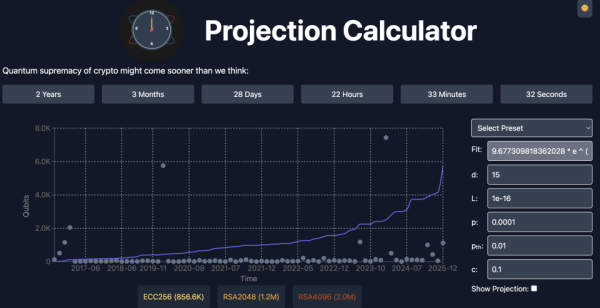A new deadline has been announced for Bitcoin to be hacked by quantum computers.
 Bitcoin's biggest existential threat, the cracking of RSA cryptographic algorithms, could materialize much sooner than expected, according to cryptoanalyst and founder of investment firm Capriole Invest Charles Edwards.
Bitcoin's biggest existential threat, the cracking of RSA cryptographic algorithms, could materialize much sooner than expected, according to cryptoanalyst and founder of investment firm Capriole Invest Charles Edwards.
The quantum Doomsday Clock has pinpointed the date when Bitcoin's cryptographic security could collapse. According to its prediction, after March 8, 2028, quantum computers will be able to crack the Bitcoin blockchain's private keys, threatening crypto wallets worth over $2.5 trillion.

According to Edwards, the threat of quantum computing highlights the vulnerability of the crypto market—without migrating to post-quantum algorithms like NIST's FIPS-204, the market risks a collapse in trust.
“In two years, four months, and two days, quantum processors will have enough logical qubits to crack elliptic curves and RSA encryption, which form the mathematical foundation for protecting almost all digital assets,” Charles Edwards assured.
But there are other opinions. Google analyst Craig Gidney believes that the pace of technological advancement and the resources of quantum computers will prevent the RSA algorithm from being cracked before 2035. Naoris Protocol director David Carvalho predicts that Bitcoin could face a quantum risk by 2030. Blockstream co-founder Adam Back agrees with Edwards's arguments but suggests that a real threat to the Bitcoin ecosystem could emerge only in 20 years.
Bits.media recently explained the scale of the quantum threat to Bitcoin, potential alternative solutions, and the risks of transitioning to post-quantum algorithms.
Source: cryptonews.net



